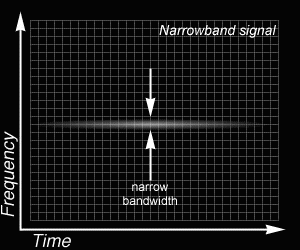- Sep 10, 2002
- 49
- 3
- Faith
- Atheist
- Marital Status
- Married
- Politics
- US-Democrat
These are four established scientific theories in various stages of development. When combined they provide a powerful – to me – almost complete explanation of creation. I am not an expert so I may have some of the details wrong.
Inflation: Start with a tiny patch of exotic material, and in a fraction of a second the entire mass of the universe is created in an exponential process. Gravitational potential energy is negative, mass/energy is positive, and the two added together to equal zero – something from (almost) nothing. When the process stops what’s left is the rapidly expanding nucleus of our universe – the big bang.
In one version of this theory, eternal inflation, this process is endless and countless universes are created.
String Theory: Space consists of the three large dimensions, plus 8 tiny curled-up ones that are connected in a unique topology. The way the small dimensions are connected is arbitrary and determines the characteristics of all matter and forces, such as the number and type of elementary particles and the strength and type of the forces between them.
Imagine that each universe created by inflation has a different topology of space, meaning different particles and forces.
Evolution: Life happens, let’s not rehash that here.
Anthropic Principle: An intelligent being looks around and thinks the universe has been tailor made for him, when in fact it has just won the inflation/string theory/evolution lottery. He doesn’t see the almost infinite number of other universes that were not capable of, or just plain didn’t happen to, produce intelligent life, because he is here, not there.
The only thing left to explain in this scenario (other than the unbelievable number of details I’ve left out), is where the initial patch of exotic material came from. You could say it was a quantum fluctuation, but that has always been unsatisfying to me because it predisposes an initial location where quantum rules apply, and where did that come from? You could say God created it, but that seems a bit unnecessary given all we need is a gram or so of weird stuff to set everything – the earth, the stars, mankind and our inquisitive sense of wonder – in motion. It’s possible that someone knows that answer and I haven’t seen it, or that no one knows yet, or that it is actually unknowable.
A final note. I’ve always felt that God is personal, something that you just Know is true (or in my case, don’t), something that is beyond testing. Not a God of the gaps, but a God of faith. It continually baffles me that religious people try to use science to convince others that God exists. My picture is of a being outside of reality, reachable only by your heart and your faith, or in my case unreachable.
Can’t we just agree the science is the science? That we can make progress on understanding the low-level workings of the universe, and leave our religious beliefs out of it?
Inflation: Start with a tiny patch of exotic material, and in a fraction of a second the entire mass of the universe is created in an exponential process. Gravitational potential energy is negative, mass/energy is positive, and the two added together to equal zero – something from (almost) nothing. When the process stops what’s left is the rapidly expanding nucleus of our universe – the big bang.
In one version of this theory, eternal inflation, this process is endless and countless universes are created.
String Theory: Space consists of the three large dimensions, plus 8 tiny curled-up ones that are connected in a unique topology. The way the small dimensions are connected is arbitrary and determines the characteristics of all matter and forces, such as the number and type of elementary particles and the strength and type of the forces between them.
Imagine that each universe created by inflation has a different topology of space, meaning different particles and forces.
Evolution: Life happens, let’s not rehash that here.
Anthropic Principle: An intelligent being looks around and thinks the universe has been tailor made for him, when in fact it has just won the inflation/string theory/evolution lottery. He doesn’t see the almost infinite number of other universes that were not capable of, or just plain didn’t happen to, produce intelligent life, because he is here, not there.
The only thing left to explain in this scenario (other than the unbelievable number of details I’ve left out), is where the initial patch of exotic material came from. You could say it was a quantum fluctuation, but that has always been unsatisfying to me because it predisposes an initial location where quantum rules apply, and where did that come from? You could say God created it, but that seems a bit unnecessary given all we need is a gram or so of weird stuff to set everything – the earth, the stars, mankind and our inquisitive sense of wonder – in motion. It’s possible that someone knows that answer and I haven’t seen it, or that no one knows yet, or that it is actually unknowable.
A final note. I’ve always felt that God is personal, something that you just Know is true (or in my case, don’t), something that is beyond testing. Not a God of the gaps, but a God of faith. It continually baffles me that religious people try to use science to convince others that God exists. My picture is of a being outside of reality, reachable only by your heart and your faith, or in my case unreachable.
Can’t we just agree the science is the science? That we can make progress on understanding the low-level workings of the universe, and leave our religious beliefs out of it?


